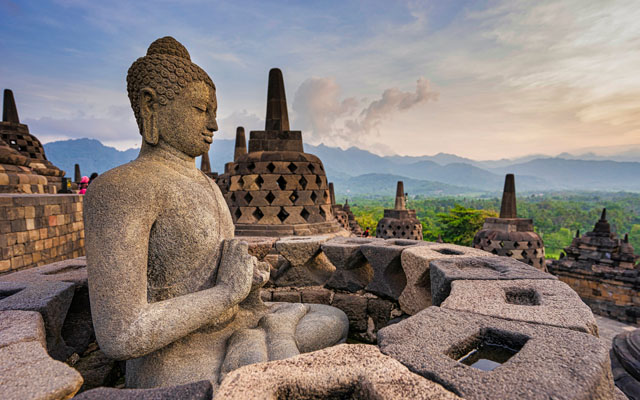The Indonesian government is boosting shopping, health and religious tourism to attract international arrivals and encourage domestic travel to balance ongoing foreign exchange leaks.
Speaking at a tourism coordination conference, Amalia Adininggar Widyasanti, director of trade, investment and international economic cooperation, Ministry of National Development Planning/National Development Planning Agency (Bappenas), identified the three sectors of growing outbound travel’s spending that has contributed to the leak in foreign exchange earnings – shopping, health and religious trips.

The government noted an increase in the interest of shopping trips to Thailand and South Korea by Indonesians. Additionally, around two million Indonesians a year seek treatment abroad in Malaysia and Singapore, while the demand for Umrah to Saudi Arabia also increased. Data on August 2023 shows that more than 800,000 people have made the Umrah trip, where the average package price is 25-35 million rupiah (US$1,597-US$2,240) per person.
To court shoppers, the government is creating shopping destinations in Indonesia through the promotion of events like the Jakarta Great Sale Festival, which has been going on for several years and Kepri Great Sale in Batam, which is under planning.
The government is also boosting the medical and wellness tourism sector to encourage Indonesians to seek medical treatments locally – the Sanur Special Economic Zone development featuring international hospitals is an example of such an effort.
To attract religious travellers, Indonesia is showcasing Borobudur Temple as the centre of Buddhist religious tourism in the world, with more than half a billion Buddhists in Asia as potential visitors to the temple. This way, more tourists will be encouraged to visit for spiritual and cultural experiences, which in turn helps generate income and promotes the cultural heritage of Indonesia.
In response to the initiatives, Jongki Adiyasa, board member of the Indonesia Inbound Tour Operator Association (IINTOA), said “the mindset needs to be corrected first”.
Jongki said the government should instead focus on providing facilities for the trade to promote Indonesia abroad more.
Heben Ezer, head of the inbound and domestic division of the Association of Travel Agents in Indonesia (ASTINDO), opined that the government should maximise promotional budgets, such as by providing discount vouchers for groups handled by tour companies and in collaboration with outlets like Bellagio, Sarinah Department Store or Grand Indonesia shopping complex.
“This way, Indonesians do not need to go to Johor (Malaysia) to find premium shopping outlets,” he said.
And to advance health tourism development, Indonesian hospitals need to improve their services to match what is available in neighbouring countries.
Citing an example, Heben said: “Indonesians go (abroad) for treatment because they feel comfortable with the (better) and measurable treatments that they get compared to (their own home country).”
Heben added that hospitals in Malaysia also provided treatment packages.
He urged collaborative efforts among health and wellness service providers and travel trade players for the positive development of health tourism in Indonesia. Furthermore, he said wellness facilities should not only be developed in Bali but across Indonesia.
Regarding the development of religious tourism, Heben raised the question of how to encourage more Buddhists from around the globe to visit Borobudur when the Indonesian Buddhists only perform rituals at the temple during the Vesak festival.
Wayan Suena, president director of Indonesia Impression, pointed out that Borobudur, the oldest Buddhist site, could be a great religious tourism site if activities were created there, for example, morning meditations.
He said: “Religion is related to prayer (as well as a) psychological experience. Develop more religious activities so guests will stay around Borobudur longer, but make management less rigid.”
Jongki agreed that Borobudur could very well be made into a religious tourism site but there must be a clear concept first.
“Regulating religious destination areas must be clear. (We need to) take into account the daily visitor quota and the arrangement of plots for certain sects because they have their (own) occupied places,” he added.




















